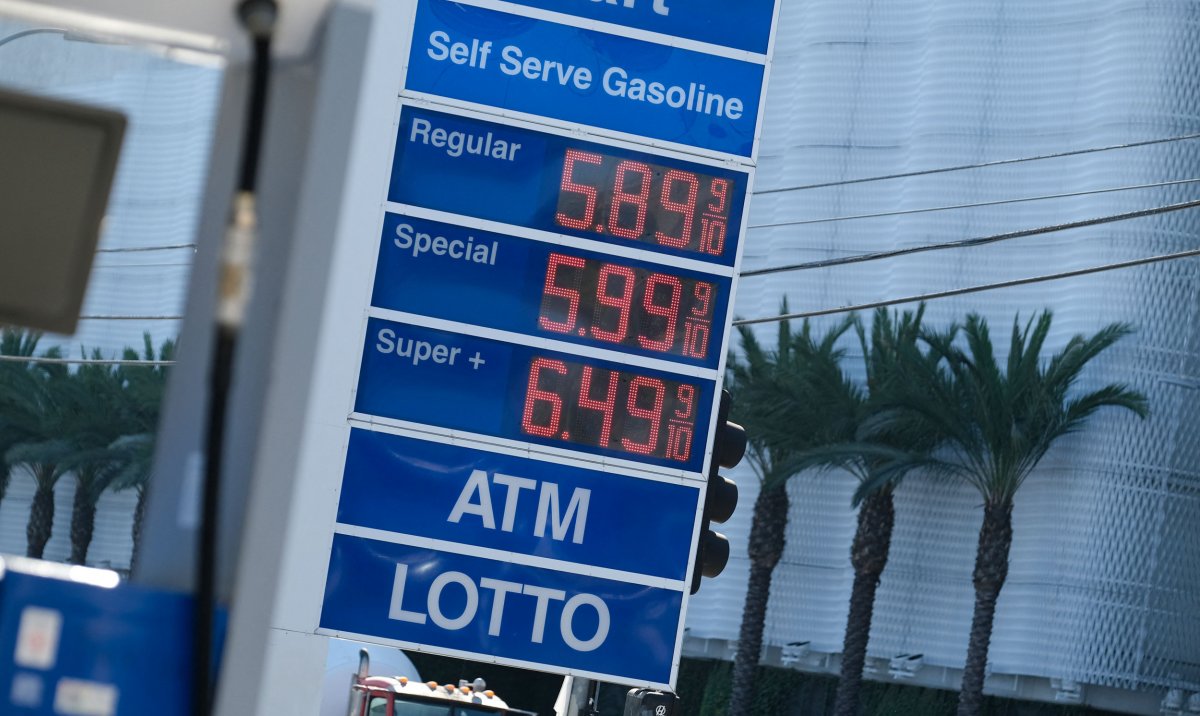California residents continue to pay high prices at the pump even as the cost of gasoline across the U.S. begins to stabilize.
The state set a new record on November 27 when average costs hit $4.713 for a regular unleaded gallon of gasoline, according to AAA. By Monday, that average had dropped slightly to $4.711, more than $1 above the national average of $3.394.
Gas prices have exceeded $5 per gallon in some parts of California, with an average cost of $5.664 reported in Mono County on Monday, AAA data showed.
Gas costs in Los Angeles County also set new records over the weekend, with the area reporting new record prices three times over one week, according to KABC-TV.

Rising gasoline prices alarmed Americans this fall as the coronavirus pandemic and supply chain problems drove up inflation rates.
On November 23, President Joe Biden acknowledged the country was "feeling the impact of elevated gas prices at the pump and in their home heating bills." He announced that the Department of Energy would release 50 million barrels of oil from the country's Strategic Petroleum Reserve "to lower prices for Americans and address the mismatch between demand exiting the pandemic and supply."
AAA said last week national gas prices appeared to be stabilizing, though the association warned that drivers "should expect pump prices to remain elevated" until oil prices decline.
But as national gas prices began to even out, costs in California continued to rise. Gas prices already tend to be higher in California because of state taxes imposed on gasoline purchases. The California Department of Tax and Fee Administration set the state's current excise gasoline tax at just over 51 cents per gallon, with other state and federal taxes bringing the total tax for a gallon of gas to 85.38 cents, according to the American Petroleum Institute. These combined taxes are higher than the gas taxes collected in any other state, the institute's data shows.
In addition to high state taxes, fees collected through California's cap-and-trade program add fees, which were at about 35 cents per gallon by late November, according to SFGate. Rising gasoline demand heading into the holiday season, after Californians have spent nearly two years battling the coronavirus pandemic, has also led to an uptick in demand, which has subsequently contributed to rising prices, AAA Southern California spokesperson Doug Shupe told the Los Angeles Times.
AAA spokesperson Jeffrey Spring also told the Times that heavy rainfall during a storm in October affected production at some oil refineries in California, which he credited with boosting gasoline prices in Northern California and contributing to the average price hikes throughout the state.
Newsweek reached out to AAA for comment but did not hear back before publication.
Uncommon Knowledge
Newsweek is committed to challenging conventional wisdom and finding connections in the search for common ground.
Newsweek is committed to challenging conventional wisdom and finding connections in the search for common ground.
About the writer
Meghan Roos is a Newsweek reporter based in Southern California. Her focus is reporting on breaking news for Newsweek's Live ... Read more
To read how Newsweek uses AI as a newsroom tool, Click here.








